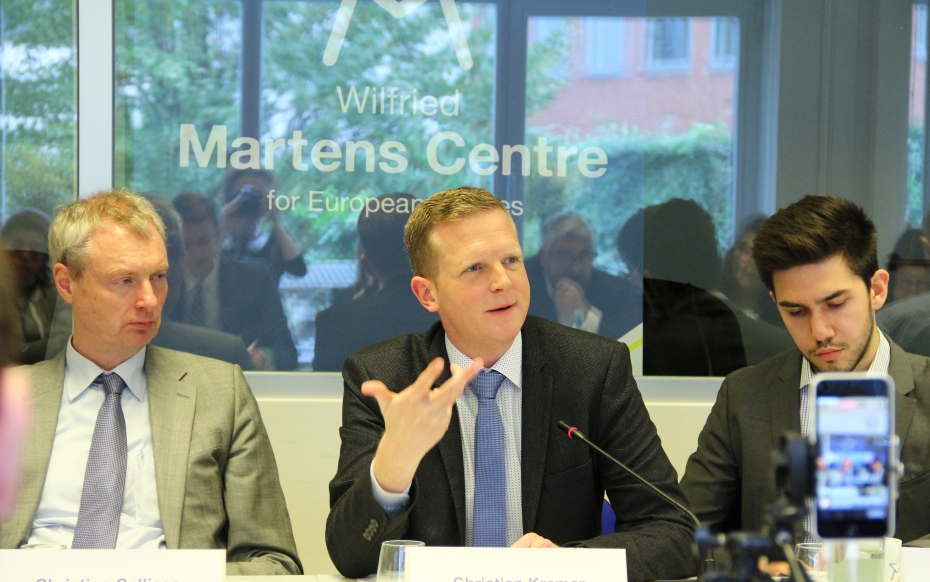Do we need to rethink EU legal commitments towards refugees?
21 July 2016

The mass influx of refugees and migrants into the EU since August 2015 has raised questions about the EU’s responsibility to give protection to people fleeing conflicts and poverty. The EU’s common asylum system is rooted in international legal obligations, including the Refugee Convention of 1951.
What does the Refugee Convention expect us to do? And should the existing legal commitments be rethought altogether? In attempting a global system of shared responsibility for refugees, what is the role of the EU and that of non-European countries? The Martens Centre asked NGO and policy experts to answer these and other questions pertaining to the refuge crisis during an event organised on 8 November 2016 in Brussels.
The debate brought together both supporters and opponents of the idea of setting limits on refugee numbers. Speakers disagreed about whether the international law allows the EU to legally limit the numbers of people who are granted international protection.
Christian Calliess, adviser for the European Political Strategy Centre, the European Commission’s internal think tank, stated that the main principle of the Refugee Convention is non-refoulement, not returning a refugee to a country where he faces danger. However, the Convention does not guarantee that refugees are ensured an individual asylum, nor does it guarantee the choice of country of asylum. Refugees are entitled to apply for asylum but the state in question has the right to deny asylum status.
Christian Kremer, Head of the Policy and Strategy Department of the European People’s Party brought the political perspective into the debate and mentioned that a significant percentage of European citizens are against accepting more refugees. Regarding quotas, in practice they could be implemented with refugees brought through resettlement programmes from outside the EU. He also stressed the need to distinguish between refugees, asylum seekers and economic migrants and ensure European security as a priority in the process. As practical solutions, Kremer proposed the processing of asylum applications outside or at the EU external border, as well as creating safe zones outside the EU.
In disagreement with the previous two speakers, Minos Mouzourakis of the European Council on Refugees and Exiles stressed that subsidiary protection is not discretionary but follows from member states’ human rights obligations. He stated that belonging to a persecuted group does not preclude one from individually falling into the refugee status. According to Mouzourakis, the European definition of the refugee is not the most generous, even when compared with African states. In his opinion, the EU was not doing enough to match the commitment of many non-European countries to large numbers of refugees.